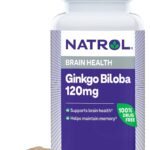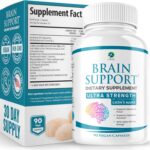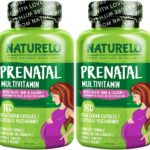The Healing Power of Herbs: How Plant-Based Remedies Can Cure Common Ailments
Unlocking the Secrets of Nature’s Medicine Chest
For centuries, herbs have been used to treat a wide range of ailments, from minor cuts and scrapes to chronic diseases. The ancient Greeks, for example, used herbs to treat everything from headaches to snake bites. Today, herbs continue to play a vital role in natural medicine, offering a safe and effective alternative to conventional treatments. In this article, we’ll explore the healing power of herbs and how plant-based remedies can cure common ailments.
From Aches to Allergies: The Many Uses of Herbs
Herbs are incredibly versatile, with different plants offering unique benefits for various health issues. For example, ginger has been shown to be effective in reducing nausea and inflammation, making it a popular remedy for motion sickness and menstrual cramps. Peppermint, on the other hand, has a calming effect on the digestive system, making it a natural treatment for irritable bowel syndrome (IBS) and indigestion. Meanwhile, turmeric contains curcumin, a powerful anti-inflammatory compound that has been shown to reduce joint pain and improve cognitive function.
The Power of Essential Oils
Essential oils are concentrated plant extracts that have been used for centuries to promote physical and mental well-being. Lavender oil, for example, is known for its calming effects, making it a popular remedy for anxiety and insomnia. Tea tree oil, on the other hand, has antibacterial and antifungal properties, making it a natural treatment for acne and minor wounds. Other essential oils, such as eucalyptus and peppermint, have decongestant properties, making them effective in relieving cold and sinus symptoms.
Herbs for Digestive Health
Digestive issues are a common problem for many people, but herbs can offer a natural solution. For example, peppermint oil has been shown to reduce symptoms of IBS, while chamomile tea has a soothing effect on the digestive system. Ginger has also been used to treat nausea and indigestion, making it a popular remedy for motion sickness and morning sickness during pregnancy. Meanwhile, turmeric contains curcumin, which has anti-inflammatory properties that can help reduce inflammation in the digestive tract.
Herbs for Skin and Hair Care
Herbs are not just limited to internal use; they can also be used to promote healthy skin and hair. For example, aloe vera gel has anti-inflammatory properties that can help soothe sunburns and reduce the appearance of fine lines and wrinkles. Rosemary essential oil, on the other hand, has antioxidant properties that can help promote healthy hair growth and reduce dandruff. Meanwhile, tea tree oil has antibacterial properties that can help treat acne and other skin infections.
Herbs for Immune System Support
A healthy immune system is essential for fighting off infections and diseases, and herbs can play a crucial role in supporting immune function. For example, echinacea has been shown to boost the immune system and reduce the severity of colds and flu. Garlic, on the other hand, has antibacterial and antiviral properties that can help fight off infections. Meanwhile, ginseng has been used to boost energy and reduce fatigue, making it a popular remedy for people with chronic illnesses.
Herbs for Stress Relief and Anxiety
Stress and anxiety are common problems in today’s fast-paced world, but herbs can offer a natural solution. For example, chamomile tea has a calming effect on the nervous system, making it a popular remedy for anxiety and insomnia. Lavender oil, on the other hand, has a calming effect on the mind and body, making it a popular remedy for stress relief and relaxation. Meanwhile, valerian root has been used to treat insomnia and restlessness, making it a popular remedy for people with difficulty sleeping.
Herbs for Pain Relief
Pain relief is a common problem for many people, but herbs can offer a natural solution. For example, willow bark contains salicin, a compound similar to aspirin that can help reduce pain and inflammation. Turmeric, on the other hand, contains curcumin, which has anti-inflammatory properties that can help reduce joint pain and improve cognitive function. Meanwhile, ginger has been used to treat arthritis and other inflammatory conditions, making it a popular remedy for people with chronic pain.
Herbs for Cardiovascular Health
Cardiovascular disease is a leading cause of death worldwide, but herbs can play a crucial role in reducing the risk of heart disease. For example, garlic has been shown to lower cholesterol levels and reduce blood pressure, making it a popular remedy for people with cardiovascular disease. Hawthorn berries, on the other hand, have been used to treat heart failure and reduce the risk of heart disease. Meanwhile, ginkgo biloba has been used to improve blood flow and reduce the risk of cardiovascular disease.
Herbs for Women’s Health
Women’s health is a critical area of concern, and herbs can play a crucial role in promoting women’s health. For example, red clover has been used to treat menopausal symptoms and reduce the risk of osteoporosis. Dong quai, on the other hand, has been used to treat menstrual cramps and other symptoms of PMS. Meanwhile, evening primrose oil has been used to treat breast pain and other symptoms of breast cancer.
Conclusion: Unlocking the Power of Herbs
In conclusion, herbs are a powerful natural remedy that can be used to treat a wide range of ailments. From digestive issues to skin and hair care, herbs offer a safe and effective alternative to conventional treatments. By incorporating herbs into your daily routine, you can promote physical and mental well-being, reduce the risk of chronic diseases, and improve overall health and wellness. Whether you’re looking for a natural remedy for a specific health issue or simply want to promote overall health and wellness, herbs are a valuable addition to any natural medicine cabinet.



















